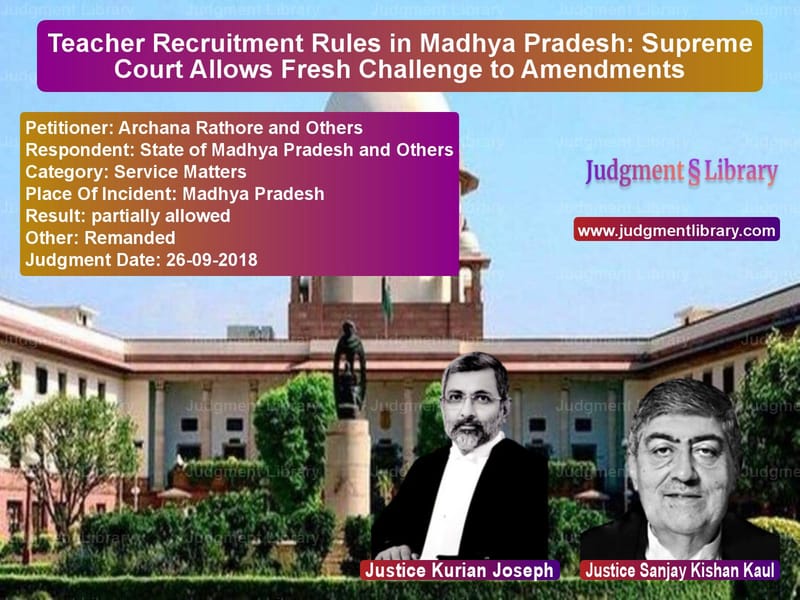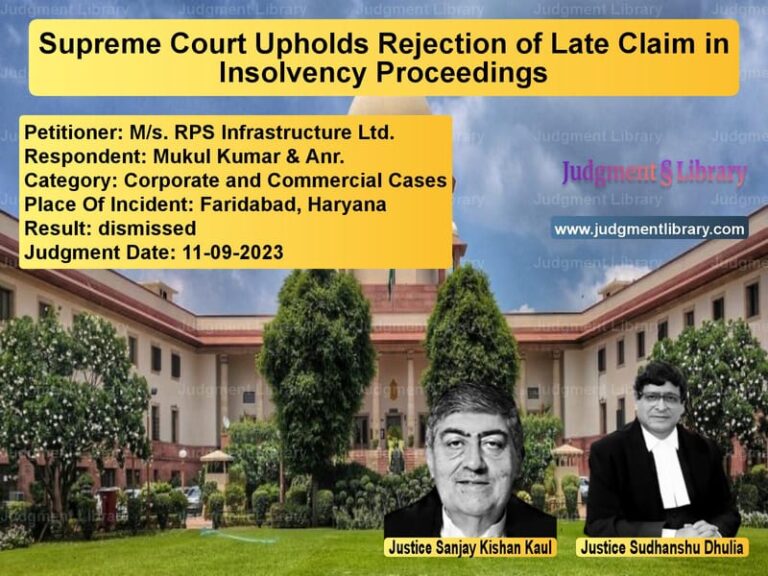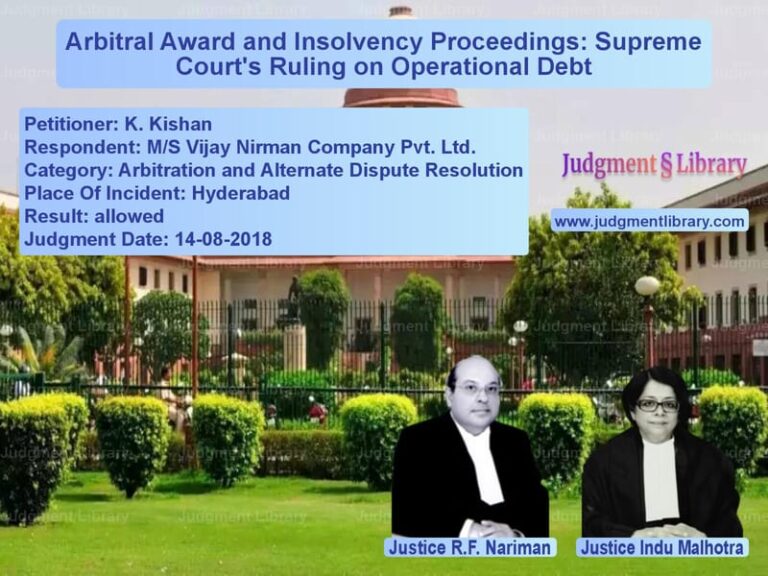Teacher Recruitment Rules in Madhya Pradesh: Supreme Court Allows Fresh Challenge to Amendments
The case of Archana Rathore & Others vs. State of Madhya Pradesh & Others is an important legal battle concerning the amendment of teacher recruitment rules in Madhya Pradesh. The Supreme Court, in its judgment delivered on September 26, 2018, addressed the validity of amendments made to the M.P. Education Service (School Branch) Recruitment and Promotion Rules, 1982. The appellants challenged the amendments introduced by the state government, arguing that they were unfair and discriminatory.
The Supreme Court acknowledged that during the pendency of the case, the State of Madhya Pradesh had introduced two more amendments in 2016 and 2018. Since these amendments further modified the rules, the appellants would not benefit from a decision in their favor based on the earlier amendments. However, the Court granted the appellants the liberty to challenge the 2016 and 2018 amendments before the High Court without being restricted by the present judgment.
Background of the Case
The appellants were teachers affected by changes in the recruitment and promotion rules for school education services in Madhya Pradesh. They argued that the amendments introduced by the state government unfairly affected their career prospects, particularly in promotions and eligibility for government positions.
The High Court had previously upheld the validity of these amendments. Dissatisfied with the decision, the appellants approached the Supreme Court, seeking a declaration that the amendments were unconstitutional.
Arguments by the Appellants
The appellants contended that:
- The amendments unfairly altered eligibility criteria, thereby affecting their opportunities for promotion and recruitment.
- The changes were made without due consideration of the existing employees’ rights, leading to unfair treatment.
- The amendments lacked a rational basis and were introduced arbitrarily.
- Their right to challenge the amendments should not be limited by the earlier High Court ruling.
Arguments by the Respondents (State of Madhya Pradesh)
The State of Madhya Pradesh defended the amendments, stating that:
- The amendments were introduced in the interest of improving the quality of education and administrative efficiency.
- The recruitment and promotion process needed restructuring to ensure fair selection of qualified candidates.
- The petitioners had the right to challenge the new amendments but should not seek to overturn the High Court’s earlier ruling.
Supreme Court’s Analysis and Judgment
The Supreme Court acknowledged that since the filing of the appeals, the state government had introduced further amendments to the recruitment rules. This meant that even if the appellants succeeded in their challenge against the earlier amendments, they would still face obstacles due to the new amendments.
Key Observations of the Court
- Since new amendments had been introduced in 2016 and 2018, allowing the challenge to the earlier amendments alone would not provide the appellants any real benefit.
- The appellants should be given a fair opportunity to challenge the entire amendment process, including the new amendments.
- The High Court, while considering the new challenge, should not be influenced by its earlier judgment upholding the previous amendments.
Final Ruling
The Supreme Court disposed of the appeals with the following directions:
- The appellants were granted liberty to challenge the 2016 and 2018 amendments before the High Court.
- The High Court was directed to hear the matter on its own merits, without being influenced by its earlier ruling upholding the previous amendments.
- If any teachers had been affected by the pendency of the case and were now ineligible to participate in competitive examinations due to age limits, they could apply for age relaxation if they met other eligibility criteria.
Impact of the Judgment
The Supreme Court’s ruling has significant implications for teacher recruitment policies in Madhya Pradesh:
- It allows affected teachers to challenge the entire amendment process, ensuring that their grievances are fully addressed.
- It ensures that the High Court must review the amendments independently, rather than being bound by its earlier judgment.
- It provides relief to teachers who may have been disadvantaged due to age-related eligibility criteria during the pendency of the case.
Conclusion
The Supreme Court’s decision in Archana Rathore & Others vs. State of Madhya Pradesh is a crucial ruling that balances the interests of the government in reforming recruitment rules while ensuring that affected teachers have a fair chance to contest changes that impact their careers. By allowing a fresh challenge to the amendments, the Court has ensured that all stakeholders have a proper opportunity to present their concerns.
Petitioner Name: Archana Rathore and Others.Respondent Name: State of Madhya Pradesh and Others.Judgment By: Justice Kurian Joseph, Justice Sanjay Kishan Kaul.Place Of Incident: Madhya Pradesh.Judgment Date: 26-09-2018.
Don’t miss out on the full details! Download the complete judgment in PDF format below and gain valuable insights instantly!
Download Judgment: Archana Rathore and vs State of Madhya Prad Supreme Court of India Judgment Dated 26-09-2018.pdf
Direct Downlaod Judgment: Direct downlaod this Judgment
See all petitions in Recruitment Policies
See all petitions in Public Sector Employees
See all petitions in Promotion Cases
See all petitions in Judgment by Kurian Joseph
See all petitions in Judgment by Sanjay Kishan Kaul
See all petitions in partially allowed
See all petitions in Remanded
See all petitions in supreme court of India judgments September 2018
See all petitions in 2018 judgments
See all posts in Service Matters Category
See all allowed petitions in Service Matters Category
See all Dismissed petitions in Service Matters Category
See all partially allowed petitions in Service Matters Category







